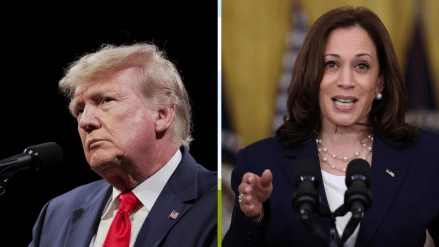If Donald Trump wins US Presidential Elections, Nomura Holdings said, while the US is expected to post higher inflation in 2025 by 0.75pp, a larger fiscal deficit, fewer Fed rate cuts and slightly weaker growth, it added, it would be beneficial for India. In a report, Nomura said that India is seen as a relative beneficiary, due to its domestic demand-driven growth model and benefits from lower commodity prices, supply chain shifts and foreign policy.
“India and the US share deep economic and strategic interests that are unlikely to be compromised, irrespective of the election outcome. The US also sees India as a strategic counterweight to China on foreign policy. India is a large, domestic demand-driven economy, so the economic fallout of weaker US economic growth should be limited. Any frictions on trade and immigration will likely be more than offset by the gains accruing to India from the ongoing supply chain shifts, as de-risking from China gathers momentum under a Trump presidency,” said Sonal Varma, MD and Chief Economist (India and Asia ex-Japan), Nomura Holdings.
“For the US, we would expect inflation in 2025 to be notably higher by 0.75pp, a larger fiscal deficit, fewer Fed rate cuts and slightly weaker growth,” Sonal Varma said, however, she maintained that a Trump victory now appears less likely than it did before President Joe Biden dropped out of the race. Recent polling, Nomura report stated, appears to favour Vice President Kamala Harris. That said, the election is still likely to be close, and a Trump victory remains a strong possibility.
Limited economic impact
Under a Trump presidency, the economic impact on India should be limited, per Nomura. The US accounts for approximately 18 per cent of India’s merchandise exports. India is also one of the world’s top services exporters, particularly of IT and professional services (global capability centers involved in the outsourcing of value added services), and the US is an important customer of India’s services sector.
However, India is largely a domestic demand-driven economy, so the negative growth spillover from weaker US growth should be limited, stated the Nomura report. On the contrary, it added, lower commodity prices owing to the hit to China’s growth and lower oil prices, due to a greater push towards fossil fuels, could be a macro tailwind for India. “We also believe that India is well-prepared to handle any volatility stemming from US policies, amid its large FX reserves buffer, stable growth-moderate inflation mix, high real rates, fiscal discipline and a continued focus on reforms,” said Sonal Varma.
Trade friction expected, but supply chain benefits to outweigh them
Under Trump 2.0, Nomura believes, there can be two sources of trade friction between India and the US. First, India runs a trade surplus with the US, which moderated during Trump 1.0, but during the Biden administration, it has moderated again. India ran a merchandise trade surplus of ~$32 billion in 2023 and this has already risen to ~$24.7 billion so far in 2024 (January-July). India also ran a services trade surplus of $7.4 billion with the US in 2022, according to the Office of the US Trade Representative (USTR).
India and the US continue to engage in frequent trade skirmishes on tariffs and market access issues, with President Trump calling India a “tariff king”. In its 2023 ‘Foreign Trade Barriers’ report, the USTR had flagged India’s high tariffs, particularly on agricultural goods, along with a host of non-tariff barriers like import restrictions, licensing requirements, price controls, subsidisation of agriculture, public procurement norms and inadequate IP protection. These issues are expected to be taken up under a Trump 2.0 presidency.
Second, Trump 2.0 may look to take punitive steps against trading partners deemed to be artificially weakening their currencies. The RBI has intervened aggressively to prevent INR from appreciating (against USD), and has built an FX reserves war chest in the process. The RBI could let the currency appreciate, and if not, there is a risk of more tariffs, the report said.
However, Nomura said that these short-term disruptions are likely to be offset by the medium term benefit to India from supply chain relocation, as de-risking from China strategy gains further momentum under Trump 2.0. “Our analysis shows that India remains at the forefront of the global value chains shifting away from China, owing to its large domestic consumer market, reforms momentum and the policy focus on domestic manufacturing,” said Sonal Varma.
Tighter immigration policy
Further, Nomura said that India could be adversely affected by tighter immigration policies. “So far, the Trump campaign seems to have prioritised action against illegal immigration particularly across the land borders, but even the legal immigration regime for professional workers and students could be tightened,” Nomura said. Per reports, Indian IT companies based in the US have already reduced their usage of H1-B visas by 56 per cent over the past eight years, preferring to hire domestic workers
Foreign policy
According to the report by Nomura, India is likely to benefit on the foreign policy front under Trump 2.0. “India has gotten along well under both the Republican and Democratic administrations. The US sees India as a strategic counterweight to China, with considerable synergy in defence, security, clean energy, and people-to-people ties. India too sees the US as an important partner in its economic growth story,” it said.
Meanwhile, there has been friction since the Russia-Ukraine war, with India’s acquisition of the S-400 missile system from Russia, refusal to condemn Russia’s invasion of Ukraine and the subsequent purchase of Russian oil, despite the US’ disapproval. “Under Trump 2.0, any softening of the US’ stance with Russia could benefit India…In the past, Prime Minister Modi and President Trump have enjoyed a strong personal rapport too. Consequently, we believe that another Trump presidency could turn out to be a net positive for India on foreign policy,” concluded Sonal Varma.
